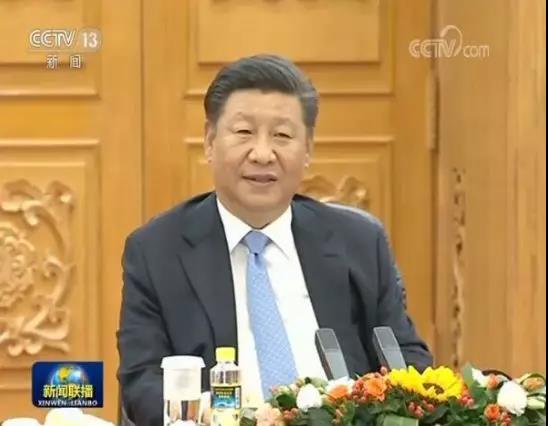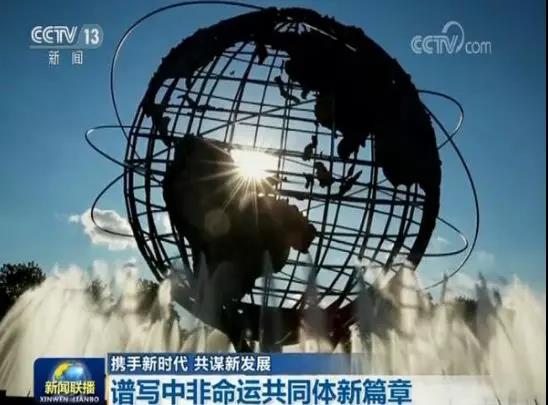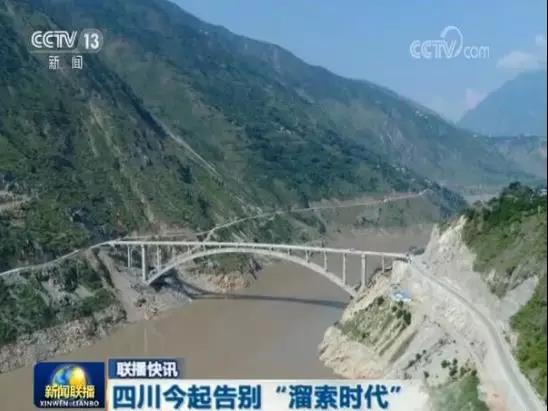Blockchain technology is "fire" again!
On October 24th, the Political Bureau of the Communist Party of China (CPC) Central Committee held the 18th collective study, covering the development status and trend of blockchain technology. The meeting conveyed a clear message, which is to take blockchain as an important breakthrough for independent innovation of core technologies, clarify the main direction, increase investment, focus on overcoming a number of key core technologies, and accelerate the development of blockchain technology and industrial innovation.
After this news was screened, many people’s interest in blockchain technology increased greatly. What kind of technology is blockchain? What are its important functions? What impact will the future bring to our lives? The reporter interviewed technical experts and insiders for the first time, trying to let you "understand" the blockchain in one article.
Question: What is blockchain technology?
In fact, the blockchain first entered the public eye because of the speculation of Bitcoin, and the underlying technology of Bitcoin is blockchain. So what is blockchain technology?
Industry experts told Caijing that there is no unified definition at present, but it is generally believed that blockchain is a distributed database, which is characterized by the combination of data blocks in a time sequence, and at the same time, the data can not be tampered with and forged by cryptography.
According to experts, the blockchain can be popularly understood as a distributed public account book, which is connected by various blocks into a chain. In the traditional accounting system, the accounting right is in the hands of the central server. The "account book" of blockchain means that every point in the chain can keep accounts (record information) on it, thus forming a peer-to-peer accounting system. Therefore, blockchain technology is considered as a decentralized technology.
More crucially, because the data is encrypted by cryptography, it is impossible to tamper with it; At the same time, the consensus algorithm used in the blockchain ensures the recognition of new data by the blockchain. In this way, the credibility and authenticity of information are guaranteed, and blockchain is also called "trust machine".
"The core function of the blockchain is to build a trust mechanism. Once the trust problem is solved, every node of the Internet will be not only an information node, but also a node of value and credit. In the future, the release and dissemination of value may change from a central node to everyone. " Li Lin, founder of Huobi.com, said.
Experts made a special analogy. In a village of 100 people, Zhang San bought a cow from the Li family and paid him 10,000 yuan. In the past, he had to rely on Zhao Liu (the chief bookkeeper), an accountant in the middleman village, to transfer 10,000 yuan from his account to Li Si’s account. With the blockchain system, Zhang San can directly record the 10,000 yuan in his account book to Li Si’s account book, and the transaction information will be transmitted to the whole village (that is, the whole blockchain system), and other 98 people can also see the information. In this way, you don’t have to worry about the loss of Zhao Liu’s account book, and you don’t have to worry about Li Si’s denial. Moreover, because the system records the whole transaction process, it has the advantage of traceability.
Wu Zhen, director of the Key Laboratory of Internet Finance Security Technology of the National Internet Emergency Center, told Caijing that the core advantage of blockchain technology is that every information in the blockchain system is saved in multiple nodes or even every node in the network. "Any node that modifies the data by itself will not be recognized by other nodes, and it is impossible to tamper with the data at will, so the whole network has formed a relatively tight network."
Second question: What is the use of blockchain technology?
It is precisely because of this characteristic of blockchain technology that it has great application potential in areas where trust cannot be solved by existing technologies.
Experts said that the development of blockchain technology has been about 10 years, and the relatively large-scale application is in the financial field represented by cryptocurrency. In addition, electronic deposit is another mature application of blockchain. Wu Zhen said, "With the deepening of economic activities, some important electronic data, such as electronic contracts, need to be deposited by a third party. However, some third-party depository institutions lack sufficient credibility. At this time, adopting blockchain technology is a better solution, that is, ensuring the effectiveness of electronic data depository by introducing multi-party supervision. "
At present, the application of blockchain technology has extended to digital finance, Internet of Things, intelligent manufacturing, supply chain management, digital asset trading and other fields. "Blockchain+"also has a certain imagination in the field of people’s livelihood.
For example, in the field of food safety, with the help of traceable and tamper-proof blockchain technology, a set of blockchain technology system and operation scheme can be built from the source of food materials. For example, when handling government affairs, using blockchain technology to realize identity information data sharing may save us the time of repeatedly filling in personal information, which will make business handling more convenient and bring better government service experience to the public.
At present, many large and medium-sized enterprises in China are studying and applying blockchain technology, including State Grid and COSCO Shipping Group. China Ping An is also one of the enterprises that entered the blockchain earlier, and has laid out the blockchain technology in five ecological circles: finance, medical care, automobile, real estate and smart city. In Zhongning, Ningxia, Ping An Property & Casualty, a subsidiary of Ping An, connects Internet of Things devices through blockchain technology, builds a traceability platform for smart agriculture production and marketing, and realizes traceability management of the whole industry chain. People can know the whole growth cycle of Lycium barbarum in real time, and establish an online production log for each Lycium barbarum field to record the production and processing processes of planting, irrigation, fertilization, pruning and picking by operators.
"In the practice of big data operation, data security, privacy protection, data confirmation, data assetization and data transaction all need blockchain technology support." Xiao Xue, senior vice president of Inspur Group, told Caijing that Inspur began to explore and study the blockchain technology in 2016, and built an "IDS" based on the blockchain, which made the data "unauthorized unavailable", "available invisible" and "data not released" to ensure the safety of authorized data. In addition, the blockchain technology is also applied to the real economy scene, and it has played a role in precision poverty alleviation and local brand protection by building an operational quality chain.
Three questions: What are the advantages of developing blockchain in China?
As an emerging technology, major countries in the world are accelerating the deployment of blockchain technology. According to research institute IDC data, global spending on blockchain solutions is expected to be close to $2.9 billion in 2019 and will reach $12.4 billion in 2022.
So, what are the advantages of promoting blockchain technology in China?
Experts said that Chinese enterprises have certain competitiveness in the field of global blockchain technology. In the invention patent ranking of global blockchain enterprises in the first half of 2019, China accounted for 67% of the top 100 enterprises, and China accounted for 7 of the top 10 blockchain enterprises.
Our government also pays more attention to the development of blockchain technology. In December 2016, the "Thirteenth Five-Year National Informatization Plan" issued by the State Council proposed to strengthen the basic research and development and frontier layout of new technologies such as blockchain. This is the first time that the blockchain has been included in the planning as a strategic frontier technology. Since then, some places have also introduced special policies to promote the blockchain industry and lay out the blockchain industry.
In Li Lin’s view, the strategic value of blockchain technology is that it is expected to help the digital economy to be fairer and more efficient, and it may become an important part of the next generation digital economy.
"Blockchain technology can realize data mutual trust, value interoperability and rights sharing, thus promoting the development of digital economy." Li Lin said, for example, people can improve mutual trust and reduce the cost of cooperation through blockchain technology without third-party central institutions and credit institutions, and at the same time intelligently distribute labor on the blockchain, which may help people share their rights and interests, and then achieve fairer and more reasonable distribution in the digital economy era.
Four questions: How will blockchain technology develop in the future?
What is the future development prospect of blockchain technology? How to prevent potential risks?
Experts said that blockchain technology looks beautiful, but to promote large-scale application, it is necessary to improve technology, identify application scenarios, and solve practical problems such as project implementation.
Experts said that in some applications of blockchain, every participant can get a complete data backup, that is, all transaction data is open and transparent, so how to ensure information privacy is also a topic that needs to be addressed in the development of blockchain.
"Only by continuously strengthening the research and breakthrough of basic technology theory can blockchain develop and apply safely, reliably and continuously; Only by continuously improving the basic support facilities can the application of blockchain really blossom everywhere. " Zhang Yifeng, dean of the China Banknote Blockchain Technology Research Institute, said.
He said that blockchain is a new cross-information technology, which promotes the innovation and landing of blockchain technology. On the one hand, it is necessary to strengthen the research of related basic technology theories, such as consensus algorithms related to blockchain performance and security, and zero knowledge related to data privacy. Proof and other cryptographic algorithms; On the other hand, it is necessary to speed up the construction of basic supporting facilities, such as blockchain industry public network and distributed digital identity system.
Dong Ning, director of the Financial Technology Research Center of Peking University (Tianjin Binhai) New Generation Information Technology Research Institute, told Caijing that to accelerate the development of blockchain technology and industrial innovation, we should attach importance to the standards of blockchain technology and promote it. "With the promotion of industrial applications, countries not only attach great importance to technical standards, patents and other intellectual property rights, but also pay more attention to the value and significance of blockchain application standards in various fields. Therefore, it is suggested that in the process of blockchain technology industry landing, more enterprises can participate in industry application standardization research, and then form national and international standards to enhance China’s international voice and rulemaking rights in this field. "
Experts especially reminded that while developing blockchain technology, China should pay attention to some potential risks that may be caused by blockchain. For example, Wu Zhen said that some lawless elements use the concept of blockchain to issue air coins and pyramid schemes; In addition, blockchain is usually related to digital assets. This field has always been the hardest hit by hackers, and the technical security of blockchain needs to be highly valued.
Experts suggest that it is necessary to strengthen the guidance and standardization of blockchain technology and strengthen the research and analysis of blockchain security risks. Explore the establishment of a security system that adapts to the blockchain technology mechanism and promote the safe and orderly development of the blockchain.


























